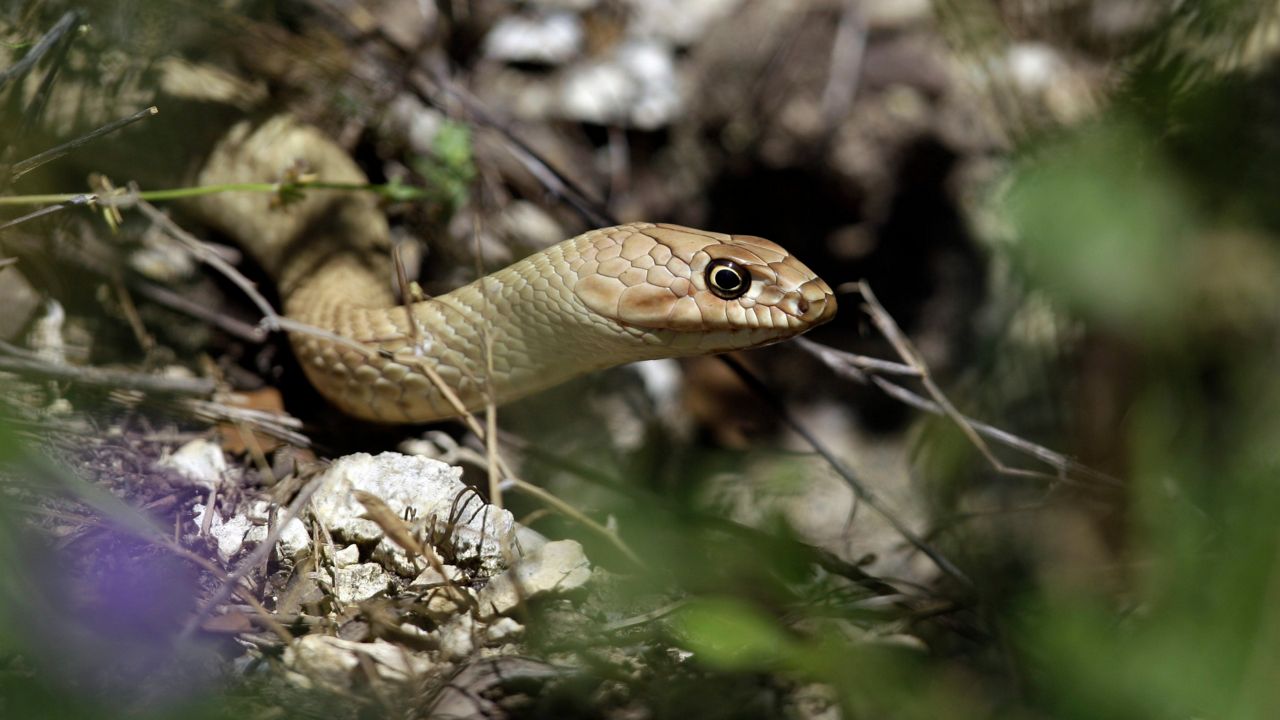TEXAS – Springtime in Texas ushers in rain, warmer temperatures, and blooming flowers. You can add something else to that list: snakes.
In fact, the Texas Department of Agriculture on Twitter this week shared a reminder that snakes could be hiding in places you’d never expect to encounter them.
All joking aside, experts say spring is when snakes start to become more active in Texas, and some of them present a real danger to people and pets.
According to a 2014 report from Texas A&M, a person who suffers a bite from a venomous snake could wind up paying upward of $50,000 in medical bills due to extended hospitalization, treatment for tissue damage, and antivenin treatments.
The good news is, only four types of snakes found in Texas are venomous. They are: copperhead, coral, rattlesnake, and cottonmouth, which is also called water moccasin.
Also, not all snakebites are equal. So-called dry bites contain no venom at all. Some snakes deliver a bite with a small amount of venom and others can deliver a great deal.
Of the four aforementioned poisonous snakes in Texas, the cottonmouth tends to be the most aggressive. You’ll frequently find them near creeks or lakes. The other three are rarely aggressive unless provoked.
Dogs tend to be bitten on the face or nose and snakes target cats’ paws. The bitten area will swell quickly, and if your pet is bitten by a venomous snake it’s important you get it to a veterinarian immediately. Venom can spread quickly in animals and kidney failure can result within 24 hours.
So how do you avoid becoming a victim of snakebite? US Davis Health provided the following six tips:
- Wear boots and long pants while hiking to help block rattlesnake venom.
- Stay on trails when hiking and away from underbrush and tall weeds.
- Never touch a snake, even if it appears dead. Even freshly killed snakes may still be able to bite.
- Look for concealed snakes before picking up rocks, sticks or firewood.
- Never hike alone in remote areas. Have someone with you who can assist in the event of an emergency.
- Teach children to respect snakes and leave them alone.
If you are bitten, it’s imperative you get immediate medical attention. Don’t apply ice, don’t use a tourniquet or constricting band, and don’t attempt to suck out the poison. Constricting blood vessels near a bite can lead to amputation.



